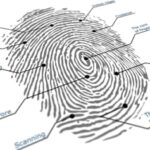Welcome to FindBiometrics’ digest of identity industry news. Here’s what you need to know about the world of digital identity and biometrics today:
Kenya Looks to UNDP for Digital ID Assistance
The Kenyan government has signed an MoU with the United Nations Development Program concerning a planned digital ID program. The project will draw on the UNDP’s extensive experience in helping other countries to set up digital IDs, with authorities seeking to avoid the legal and privacy-related obstacles that a previous national ID project, Huduma Namba, encountered. Authorities expect to officially launch the new digital ID on October 2nd of this year.
Biometric Requirements to Double Wait Times at UK/France Border: Watchdog
A new report from France’s public finance watchdog is warning that the introduction of biometric screening at the United Kingdom border will at least double wait times for travelers. Ahead of the pending biometric Entry/Exit System for Europe’s Schengen Area, of which France is a part, new rules will require the collection of visitors’ face and fingerprint data upon their first arrival at the border. Subsequent visits should be more seamless, though after three years the biometric data of a given individual will need to be re-registered.
Apple Gets Second MacBook Face ID Patent
Apple has been granted its second US patent for technology that would install the company’s Face ID facial recognition system in its MacBook laptops. But that doesn’t mean it’s actually going to happen: The first patent’s application was filed over six years ago, and, as 9to5Mac points out, there’s still a serious technical hurdle in actually implementing the bulky imaging technology used in an iPhone’s Face ID into the very thin screen of a MacBook.
MACo Panel to Talk Law Enforcement Facial Recognition With Clearview Counsel
Clearview AI will be making the case for facial recognition in law enforcement at this week’s MACo Tech Expo, hosted by the Maryland Association of Counties. A session entitled “Facing the Future: What Facial Recognition Means for Public Safety” will entail a panel discussion featuring officials from the Maryland Coordination and Analysis Center and the Montgomery County Special Investigations Unit, as well as Clearview AI General Counsel Jack Mulcaire. A description of the panel on the event’s website says it will cover the “groundbreaking public safety and crime prevention results” of facial recognition technology. The event is slated for August 16, starting at 1:15 p.m. ET.
Delinea Polls Cyber Pros On Authentication Methods
Delinea, a San Francisco-based provider of enterprise access management solutions, found that 73 percent of attendees polled at the recent BlackHat USA Conference use some form of multi-factor authentication. Fifty-seven percent said they use an authenticator app, and 40 percent said they use biometric authentication. While Delinea has not disclosed the actual number of participants in its survey, the poll nevertheless illustrates some trends among professionals who presumably have an above-average awareness of cybersecurity issues. It also found strong support for passkeys, with 21 percent saying they use the relatively new authentication tool.
VSBLTY Beefs Up Security Platform With Intel GPU
VSBLTY has upgraded the architecture of its computer vision-powered security solution, moving from a CPU-only system to one outfitted with an Intel CPU together with the Intel Data Center GPU Flex 170. The company says that the move has significantly improved the performance of its Vector Weapons Recognition product, reducing its number of false positives. Its Vector platform also supports facial recognition, and is designed to automatically alert security personnel when a potential threat is detected.
Mobile ID Comes to Kentucky Campus
The University of Kentucky is rolling out a mobile student ID for the coming school year. Students will be able to use the WildCard Mobile ID to access facilities like residence halls, and to make purchases at cafeterias and campus stores. The mobile ID was developed in collaboration with HID Global and CBORD, which had worked with Allegion to bring mobile IDs to the University of Tennessee in Knoxville back in 2020. At UK, the WildCard Mobile ID will see a phased rollout, with a physical ID still required to access certain locations, such as medical campus buildings. Teachers and staff will have to wait until the coming year before they get access to the mobile ID.
–
August 15, 2023 – by Alex Perala









Follow Us